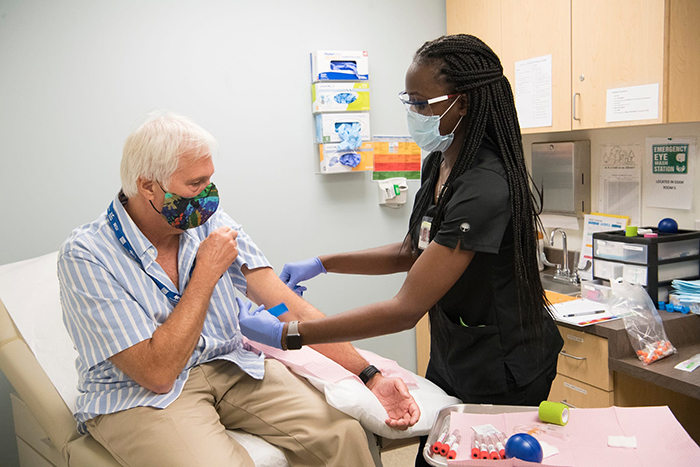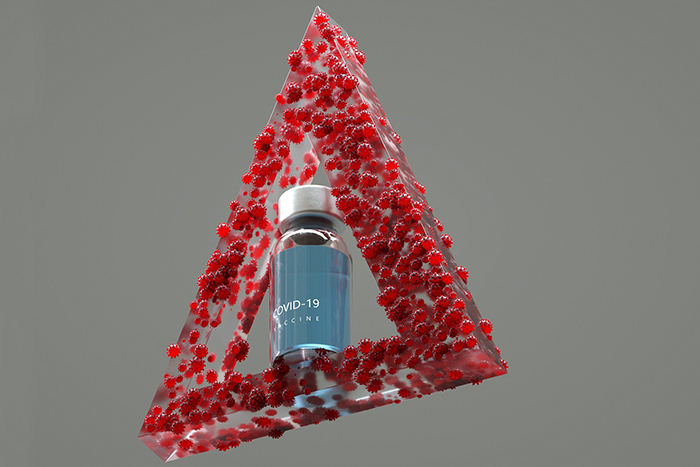At the same time, we are inundated with evidence that, at least so far, many people are still resistant to these feelings and are putting others at great risk with their behaviors.
Nevertheless, it is in these moments that compassion will be of the utmost importance. Compassion is defined by the scientists who study it as the feeling of warm concern for another’s suffering accompanied by the motivation and hungry appetite to help alleviate that suffering. A large body of research now supports the idea that compassion is an antidote to loneliness and isolation.
Compassion is perhaps the key ingredient to well-being, especially in the face of stress and crisis. And interestingly enough, among the most potent of flavors of compassion is that toward ourselves.
Self-compassion is not indulgent; rather, it is the act of noticing your suffering and its sources, and of being motivated to reduce that suffering and increase your well-being. It is holding yourself in the warm care that you aim to extend to others, and working to increase your future flourishing.
Compassion can and will be destined to take many forms. As we will witness the incredible compassion of our health care providers, we will also see the everyday mundane compassionate acts of parents, neighbors, teachers, and strangers, all called to small and invisible actions. Interestingly, a pervasive and insidious barrier to compassion is a lack of self-efficacy, the fear or belief that we won’t be capable of compassion.
One of the amazing things about our current situation is that some of the most important acts of compassion will be inaction as we attempt to #FlattenTheCurve. Staying home will be our most effective act to combat this pandemic. It will be helpful to remind ourselves of that frequently and to frame our inaction as compassion. Never has the bar for compassion been lower!
We will also need self-compassion, with a focus on action to decrease the suffering of our future self. It will entail exercising and doing physical therapy at home, eating as healthy as we can manage, identifying and addressing ways that we contribute to our emotional suffering, and sitting painfully in the ambiguity and fear of our current situation without numbing ourselves to it.
Science Says You Can Increase Compassion
Compassion requires optimism and I do believe there are plenty of silver linings we can point out, even during the time of COVID-19.
But is it OK to talk of silver linings when so many people are suffering so immensely? Is it OK to talk of optimism when suffering will be experienced so unequally around the world?
I think, yes. However, it must be discussed carefully, with the clear acknowledgment that silver linings are not equally accessible to everyone. There are opportunities in this crisis to increase our compassion and well-being, and scientific findings help us identify those silver linings.
1. Never waste a crisis
We’re seeing that this crisis is being used as a chance to overcome barriers and to increase accessibility. Telemental health, telemedicine, and tele-education has and will continue to advance and proliferate in ways that will be of tremendous benefit to those with disabilities, people in rural communities, and those living with poverty.
We can also use the ‘never waste a crisis’ adage in our lives. When we have a life disruption, our habit-performance is also disrupted, such that we often act in more accordance with our intentions. This has the potential to be fertile ground for acting more in harmony with our values. Why waste this crisis and disruption if we can use it to get closer to our values.
2. Increase appreciation
The current threat to the oldest and most vulnerable in our societies, while terrifying, has inspired many of us to think of and sacrifice for our elders. As a friend put it, our efforts in social distancing are an indicator of the lengths that we will go to protect our elders and it has motivated many of us to think in sobering detail about what it would be like to lose our grandparents and elders.
What is more, many societal roles have never been more appreciated. Another friend, an ICU nurse who as I type this is working on the frontlines of this crisis, told me that she had never seen such happy cashiers at the grocery store. Their happiness will no doubt wane as grocers take on ever-greater risk, fear, and exhaustion, but her point was that the previously mundane act of selling toilet paper has never been so appreciated. May this appreciation continue and may it outlast our crisis.
3. Increase awe
One of the fastest and most potent conductors of empathy and compassion is awe. The feeling of awe snaps us from our navel-gaze, helps us transcend our perspective, and increases our compassion and prosocial action.
Quite simply, it is good to feel tiny in a big universe. I have been struck with incredible awe at images of the world shut down, a coordinated effort so large it would be incomprehensible but for such photographs.
4. Maintain calm
To think of people as good or evil is to know only a caricature of that person, a poor approximation at best. It is also recognized by many as a core barrier to compassion.
We witness the most profound acts of selfless courage among health care providers in one moment, and the selfish and vacuous acts of egregious hoarding in the next. When we can remember that these single events are but impoverished stories about the people around us, our wisdom of compassion will be increased.
Emory Lifestyle Medicine & Wellness: Join a Community
As the poet John Donne famously penned, “No man is an island.” We thrive when we work collaboratively to tackle and overcome our greatest obstacles. We recently launched Emory Lifestyle Medicine and Wellness to build an interactive community focused on whole-person, self-care solutions. We combine science and well-proven strategies with immersive learning to get to the root cause of disease. We want to spread knowledge about the fundamentals of health—to fulfill our vision of people living happier, healthier lives. We invite you to learn more.
About Dr. Mascaro
Jennifer Mascaro, PhD, is an assistant professor in the Division of Preventive Medicine of the Department of Family and Preventive Medicine at Emory University School of Medicine.
Dr. Mascaro’s current research program examines interventions that enhance social connectivity, and in so doing, impact health. Ongoing projects include longitudinal investigations of compassion and mindfulness meditation training for diverse populations, including Emory Healthcare employees, medical and physician’s assistant students, and veterans with post-traumatic stress disorder.




